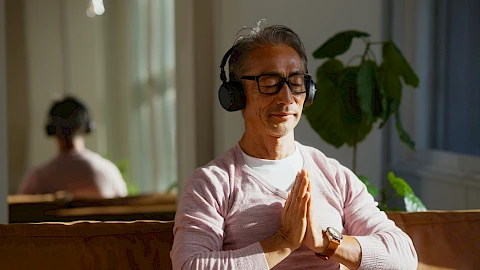
Older adults who face unique stressors might have difficulty finding moments of calm in the fast-paced world. Meditation offers a simple yet powerful approach to achieving relaxation. Beyond providing immediate stress relief, it can also result in long-term mental clarity and emotional well-being. Developing a meditation practice can be a valuable tool for enabling a healthy lifestyle for seniors.
The Connection Between Meditation and Stress Relief
Meditation is a practice that involves focusing the mind on a particular object, thought, or activity to achieve a mentally clear and emotionally calm state. It helps eliminate stress by promoting relaxation and reducing the levels of stress hormones in the body. The practice can also improve concentration and enhance overall emotional health. Seniors dealing with anxiety or any age-related challenges can also benefit from meditation, offering them a sense of peace and equanimity.
Getting Started with Meditation
It doesn't require a lot of time or space to get started with meditation. Here are several tips for beginners:
- Begin with Short Sessions: Start with just five minutes a day and gradually increase the time as you become more comfortable. Go at your own speed and let your meditation time evolve naturally for you.
- Choose Simple Techniques: Consider the type of meditation that most fits your needs. Mindfulness meditation and visualization meditation are excellent starting points. They are easy to learn and can be practiced anywhere.
- Focus on Comfort: Find a quiet and comfortable place with minimal distractions to sit or lie down. Use cushions or chairs to support your posture and ensure you feel relaxed.
- Pay Attention to Your Breathing: Close your eyes and focus on your breathing. Breathe slowly and try to visualize the air in your lungs as you inhale and exhale.
- Be Patient With Yourself: Be gentle with yourself. Learning to meditate is an ongoing process. Remember that it takes time and practice to get to where you want to be.
Building a Routine
Consistency is key to making meditation a regular part of your life. Build a sustainable meditation routine by first identifying the best time of day to practice, whether it is in the morning, afternoon, or evening. Try to integrate meditation into daily routines and existing habits. Practice meditation after morning coffee, before a nap, or after an evening walk.
It can also help to use reminders. Set alarms or place visual cues, like a yoga mat or meditation cushion, in visible areas to remind yourself to meditate.
Making Meditation a Long-Term Habit
Staying motivated is essential to making meditation a lasting part of your life. Keep a meditation journal to track your progress and reflect on the benefits you have experienced. Your meditation practice should evolve with you, and you might have to adapt it as needed.
If your schedule changes, adjust your meditation time or duration to fit your new routine. Consider participating in a meditation group or ask family members to join you. Sharing the experience can provide a sense of community while enhancing your motivation.
Never Miss a Meditation Schedule with Routine Reminders From Senior Helpers
Incorporating meditation into daily routines can be a rewarding habit for seniors. Still, staying on track can be challenging when you have a busy schedule. Senior Helpers Chicago/Evanston provides personalized senior home care solutions, including routine reminder services, assistance with daily living tasks, and more. Contact us to learn more about our senior services in Chicago and Cook County, IL!